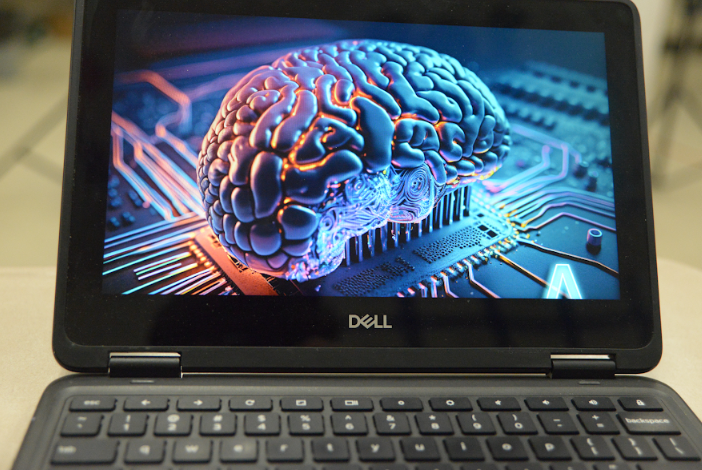“It’s a big pain in the rear. Now kids will just have AI write their papers instead of writing it,” Nicholas Haynes, a teacher at Lakeland High School, said.
A powerful resource pushes its way into America’s way of life. Mapping technologies, voice-assisted phones, spam filtering, language translation and many more struggles have been reduced to a simple solution: AI.
Artificial intelligence is not only being recognized by the government and high-earning companies but is on almost every cell phone and discussed in many households.
While these technologies affect the world immensely, their impact on schools and education changes how children learn and even graduate from public school systems.
Giving students access to technology at a young age is a beneficial tool, but now that these devices have become highly powerful in generating automatic responses to assignments like essays and simple answers, and even allowing students to earn perfect grades without ever touching a piece of work.
Many school districts in America are using certain websites to improve the detection of this artificial intelligence. Many sources include plagiarism detection, AI detection and typical spell and grammar check features. These measures are critical in maintaining academic integrity in the school.
“I don’t think it is unfair,” Morgan Porter said. “I just don’t think you should take credit for using pre-generated things. You should not get credit for using others’ information.”
Students who write work in their native language and then use a translator to switch it to English are flagged for AI use by these underdeveloped websites, as do students who use Grammarly or other similar spell-check websites.
Ways around these websites can be found. Many students abuse this powerful technology as it can generate accurate responses to almost any prompt.
Teachers around the nation are beginning to see a decline in personal growth. Mistakes and struggles benefit the student, yet they are often punished by the teachers, forcing the student to change that mistake.
Overall, avoiding mistakes and increasing grades are the main reasons students cheat using this technology.
Ever-progressing technology seems one step ahead of teachers and administrators trying to combat this issue and promote integrity in schools.
One method that has popped up in many discussions to help combat cheating is the use of the tool in the classroom.
Controversy hovers around this idea, though, as some parents feel that the idea that a chatbot is teaching their children is off-putting and dishonest.
“After watching Terminator, I am a little bit scared of it,” Millie Nickels said.
The ongoing debate against AI is not only being discussed in the school setting. The New York Times is suing OpenAi due to copyright infringement. Millions of New York Times articles were used to train the AI for more accurate and human-like responses.
Many authors, including Sarah Silverman, are similarly suing AI websites that used her books to train their computers. Ordinary civilians are also having their privacy rights infringed, as a lot of AI websites use Spotify playlists, TikTok videos and Instagram posts to train their technology. These companies could owe millions of dollars.
Defendants in these cases, such as Google and OpenAi, debate that by people posting these things publicly, they are giving consent to their video being used in those ways.

